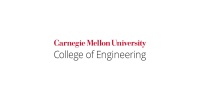Abby Verret
337-255-7049
averret@andrew.cmu.edu
Uber and Lyft are dramatically reducing wait-time disparities for Black riders, but the impact of systemic segregation persists.
(Black PR Wire) PITTSBURGH--(BUSINESS WIRE)-- A new study from researchers in Carnegie Mellon University’s College of Engineering found that ride-hailing apps like Uber and Lyft have helped to mitigate racial discrimination against Black passengers.
The study builds on prior research that concluded using a Black-sounding name results in up to double the cancellation rate as when using a White-sounding name, but despite that substantial difference, wait times for a ride were the same or differed by mere seconds.
To understand the similarity in wait times, the CMU researchers ran simulations of all the rides taken in Chicago, both before and after the Covid-19 pandemic, across a variety of days. The research estimated that at least 3% of drivers must be discriminating based on race to produce the cancellation disparities prior studies have observed. But it also showed that the ability of these services to rapidly rematch riders to new drivers nearly eliminates the effects of driver racial discrimination on rider wait time disparities.
“The technology is mitigating a social issue, which is pretty rare,” said Jeremy Michalek, professor of engineering and public policy (EPP) and mechanical engineering. “Discrimination is having little effect on average wait times, at least in part because these apps are able to quickly rematch when somebody cancels. Whereas with taxis it was a very hard problem to solve.”
Racial discrimination against passengers hailing rides has been a problem throughout the taxi era. “In the absence of these apps, certain populations having extremely long wait times could be lost because it is a hidden injustice where people just get passed by on the street,” said Destenie Nock, professor of EPP and civil and environmental engineering. “Now you can be reconnected quickly, which allows for people to get to work on time, make their hospital appointments, and be active participants in the transportation system.”
Individual racism is only one part of the equation, and the larger systemic problem of residential segregation led the team to focus on Chicago – one of the most residentially segregated cities in the United States, which also happens to make a lot of data available about ride-hailing trips.
Even when drivers treat everyone equally, Black riders in Chicago experience notably longer wait times because of where people live, the study showed. Residential patterns in Chicago are influenced by a long history of discriminatory practices, including redlining, and other factors like inherited homes and wealth. Today, Black residents are concentrated in South Chicago, which is further from busy downtown areas, meaning fewer drivers are in the area to pick up passengers.
This research is unique in that it distinguishes between “direct discrimination, like when a driver cancels on a rider because of their race, and systemic discrimination, where history has informed patterns in where people live so that even when the effects of direct discrimination are small or disappear altogether, disparities can persist,” said EPP PhD student Anna Cobb. “Being able to distinguish these effects can help inform how we address disparities in the real world.”
“It is encouraging how well this technology has mitigated the effects of driver discrimination on riders,” Michalek said. “But in a society with entrenched disparities, even a service without any direct racial bias can produce large gaps in service quality that can reflect, or even exacerbate, existing disparities.”
Corey Harper, assistant professor of civil and environmental engineering and the Heinz College, and EPP alumnus Aniruddh Mohan also contributed to the research.
About the College of Engineering: The College of Engineering at Carnegie Mellon University is a top-ranked engineering college that is known for our intentional focus on cross-disciplinary collaboration in research. The College is well-known for working on problems of both scientific and practical importance. Our “maker” culture is ingrained in all that we do, leading to novel approaches and transformative results. Our acclaimed faculty have a focus on innovation management and engineering to yield transformative results that will drive the intellectual and economic vitality of our community, nation, and world.
About Carnegie Mellon University: Carnegie Mellon, cmu.edu, is a private, internationally ranked research university with acclaimed programs spanning the sciences, engineering, technology, business, public policy, humanities, and the arts. Our diverse community of scholars, researchers, creators, and innovators is driven to make real-world impacts that benefit people across the globe. With a bold, interdisciplinary, and entrepreneurial approach, we do the work that matters.
Source: Carnegie Mellon University College of Engineering

